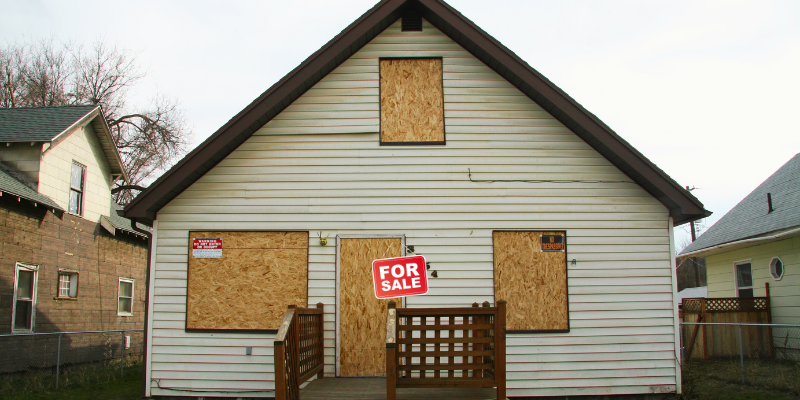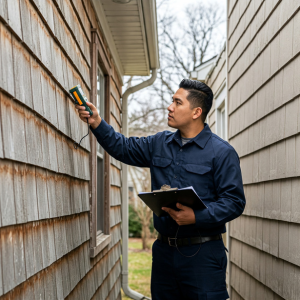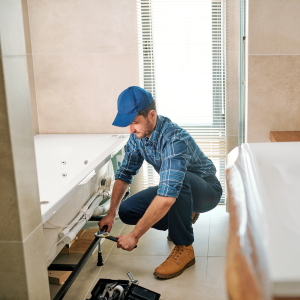
It may seem hard to sell a condemned house in Georgia, but with careful approach and some smart choices, you can convert what seems like a lost cause into a great opportunity. Understanding your rights, your alternatives, and Georgia’s local laws is the key to success, whether your property has structural damage, code violations, or legal problems.
This guide will show you how to do everything, from finding out what makes a property unlivable to looking into ways to sell it fast. We’ll talk about ways to get buyers interested, how to fix things up versus leaving them as-is, and even state programs that can help with the costs. You’ll feel more in control, better informed, and ready to move forward confidently by the conclusion. This will turn a difficult situation into a wise real estate decision.
Key Highlights
In Georgia, legal reasons for condemnation generally include damage to the structure, health risks, and breaking construction codes.
- Owning a condemned house might hurt your finances because the market value goes down and you may lose equity.
- When deciding between making repairs and selling as-is, you need to think about the state of the market and the possible return on investment.
- To sell condemned houses, you need to find buyers who are interested in flipping them and show them how much money they could make.
- Many state and local initiatives help condemned property owners with money to make things easier for them.
What Makes a House Condemned in Georgia
In Georgia, a house doesn’t just become condemned overnight. It’s usually because of problems that keep happening until the local government decides the property is unsafe or unusable. The first step to getting back control is to understand what this implies and why it happens.
Some of the most common reasons are serious structural damage, health and safety hazards, or breaking the building code over and over. Homeowners may make better decisions about what to do next—whether that’s fixing the house, appealing the condemnation, or getting it ready to sell—by learning how the law defines a condemned house and what usually causes it.
If you take the initiative, you could even be able to get the condemnation lifted and increase the property’s worth before you sell it.
What the law says about condemnation and how to tell if it is happening

According to Georgia law, a house that has been condemned is one that local officials have formally said is not safe to live in. This usually happens when the house doesn’t fulfill the basic safety, health, or building code standards.
The procedure usually starts when local housing inspectors come to the home after complaints or indicators of damage. They send a notice telling the owner what has to be rectified and when it needs to be done if they detect serious problems like walls falling down, wires showing, or broken plumbing.
If such flaws aren’t fixed quickly enough, the property can be deemed condemned, which means that the people living there have to leave until the residence is brought up to code.
There are a few things that could lead to condemnation:
- Unstable structure or breakdown of the foundation
- Utilities that don’t work (water, electricity, sewage)
- Conditions that are not clean, like mold or bugs
- Asbestos and lead paint are examples of dangerous materials.
When homeowners receive a condemnation notice, the law requires that they be given written documentation explaining the reasons behind the decision, along with an opportunity to correct the issues. Taking quick action—often with help from engineers, inspectors, or contractors—can sometimes reverse the status and prevent the property’s value from dropping even further.
Understanding these steps not only helps homeowners stay compliant with the law but also safeguards their investment by avoiding fines or potential property loss. And if repairs aren’t a practical option, knowing how to sell your house fast in Georgia can be a smart way to protect your equity and move forward confidently.
Reasons Why Houses in Georgia Get Condemned
A lot of homes in Georgia are condemned for problems that could have been avoided—problems that start off modest and get worse over time. Not keeping up with repairs is a big problem. A leaking roof, broken wires, or old plumbing may not seem like a big deal at first, but if you don’t fix them, they can cause a lot of harm.
The fact that Georgia is humid is also a huge factor. Mold can grow in places that are always wet, and if it isn’t dealt with, it can make a property unsafe for people to live in and cause it to be condemned. Flood damage, especially in low-lying places, can also make the property less safe by weakening or rotting the structure.
Another typical reason is damage from fire. Even small fires can leave behind hidden structural or electrical hazards that make a home unsafe to live in.
There are other explanations as well:
- Long-term neglect because to money problems
- Repairs that don’t work and break the law
- Dangerous activities that happen on the premises, including drug labs, that are against the law
Even while the list looks long, it’s important to remember that regular maintenance and inspections can help avoid or at least deal with many of these issues. Not only does acting quickly protect your investment, it can also save you thousands of dollars in the long run.
What happens to your Georgia house when it is condemned?
The ramifications of condemning a home go far beyond the property itself. For those who own homes in Georgia, this can affect their financial security, mental health, and even the reputation of their area.
Knowing how condemnation affects property value, legal requirements, and safety concerns can help you make clear, confident choices about what to do with the house, whether that means fixing it up, selling it, or getting financial support.
What it means for your finances and property value
When a house is officially condemned, its value on the market drops a lot. Buyers perceive the possibility of expensive repairs, possible legal issues, and limited financing alternatives and often decide not to buy.
This abrupt decline in interest rates means that property values will go down and the homeowner will have less equity. Even refinancing can be hard because lenders don’t like to give money to properties that have been condemned.
But not everything is lost. There are many ways for homeowners in Georgia to get some of that lost value back.
For instance:
- You can apply for loans or grants from the state or county to help you get better. These can help pay for repairs that are needed.
- Find real estate investors who focus on flipping or rebuilding condemned homes and work with them.
- If the house can’t be fixed, sell the land itself.
- Even though the financial impact may seem big, using these initiatives and collaborations can help you turn a debt that isn’t going anywhere into an opportunity.
Concerns about the law and safety for homeowners
A condemned house doesn’t simply cost you money; it also comes with a lot of legal and safety concerns.
Homeowners are required by law to deal with the causes for condemnation within a certain amount of time. If they don’t, they could face penalties, lawsuits, or possibly being compelled to tear down their building. Following Georgia’s housing rules and keeping in touch with local officials will help you avoid more problems.
From a safety point of view, it’s usually unsafe to live in condemned dwellings. Structural collapses, exposed wires, or materials that are polluted with mold or asbestos can all be very harmful to your health. Before any work or sale can go forward, it is very important to get licensed professionals to look at these risks.
Also, if someone is hurt on the land, liability becomes a problem. Homeowners can defend themselves from litigation by putting up the right signs, putting up secure fences, and keeping records of inspections.
In summary, taking care of both the legal and safety issues of a condemned property ahead of time protects your family and gives you a stronger position when it’s time to sell.
Looking at your options: Is it possible to sell a condemned house?
Yes, you can sell a condemned house in Georgia. You just need to do it the proper way.
The most important thing is to know what your options are, how much money you have, and if you want to fix the house or sell it as it is. There are pros and cons to each path, and the one you choose will depend on how much time, money, and effort you can put into it.
Selling condemned properties: what the law says
When you sell a condemned house, there are legal restrictions on the property that make it different from a normal home sale. There are still a number of valid options to think about.
In Georgia, sellers must tell buyers about any problems with the property before they buy it. Being open not only keeps you safe from the law, but it also helps you gain the trust of potential purchasers, especially those who deal with distressed or investment properties.
People who buy homes with cash and real estate investors typically hunt for chances like these. They have the tools and knowledge to take on big repair or redevelopment jobs.
Before you put your house up for sale, make sure you:
- Check the zoning rules in your area. They will tell you what you can do with the land when you sell it.
- Talk to a real estate lawyer about how to write the right disclosures.
- Think about getting an appraisal or inspection so that potential buyers know exactly how much it will cost.
- These measures make sure your sale is legal and provide buyers peace of mind about what they’re buying.
Fix Up and Sell or Sell As-Is
There are a lot of things to think about when deciding whether to fix up your condemned property or sell it as-is. The most important ones are time, money, and the state of the market.
If you have the money and the property is in a good area, remodeling can be worth it. A refurbished home might sell for more money and be more appealing to traditional buyers. But big renovations may rapidly become expensive and time-consuming, especially when you have to deal with permits, code compliance, and unexpected problems.
If you’re looking for a quick solution, selling your home as-is might be the best route. We buy houses in Richmond Hill and, like many cash investors and developers, we often purchase properties in their current condition to renovate or rebuild. This means you can skip costly repairs and move forward faster.
Before deciding, it’s a good idea to get quotes from both contractors and investors. That way, you can compare what each option could realistically offer and choose what works best for you.
Figuring Out the Costs: From Remodeling to Demolition
It’s important to know the financial side of things if you want to patch up your Georgia home or knock it down completely.
You can make wise decisions that help you reach your goals—whether that’s making the most money, paying off the least amount of debt, or starting over on the same lot—if you precisely estimate the expenses of renovations, repairs, and demolitions.
How to Figure Out the Costs of Repairs and Renovations

In Georgia, the cost of fixing up a condemned property can be significantly varied depending on how big, old, and damaged it is.
Some common costs are:
- Repairs to the foundation
- Replacing the roof
- Rewiring and plumbing work
- Getting rid of mold or asbestos
- Painting and fixing up the inside
If you want an accurate estimate, you need hire an expert to do a property evaluation. It’s an extra step, but it helps you prevent surprise costs during the restoration and makes sure that all the work fulfills Georgia’s building codes.
It’s also a good idea to think about whether the repairs would really raise the value of the home enough to make the cost worth it. In communities that are doing well, renovations can greatly increase the value of a home when it is sold. But you might not get back what you spent in markets that are going down.
Knowing how much it costs to tear down
Sometimes, tearing something down is better than fixing it.
The cost of demolition in Georgia mainly depends on the size of the building, the type of materials used, and how they need to be disposed of. Most professional demolition companies include the cost of permits, removing trash, and safety checks in their quotations.
It may seem like a big deal, but cleaning the lot can open up new opportunities, whether you want to sell the site, start over from scratch, or get developers interested in redeveloping the area.
In some circumstances, it is faster and cheaper to tear down a house with serious structural problems than to fix it. Also, it’s easier to sell and get money for a clean lot than for a building that is falling apart.
How to Sell a House That Has Been Condemned in Georgia
It doesn’t have to be crazy to sell a condemned property. You can speed up the process and get serious buyers by organizing everything and having the correct paperwork.
- Getting the paperwork ready
- Before putting your house up for sale, make sure you have all the paperwork that proves the property’s current legal and physical state. This includes:
- The official notice of denunciation
- Reports from the city or county about inspections
- Records of property taxes and mortgages
- Title reports that reveal who owns the property and any liens on it
Getting them ready makes your listing clearer and gives buyers greater trust. It also makes discussions go faster and keeps legal problems from coming up at the last minute.
If you can, include any professional evaluations or estimates for repairs. These help potential purchasers understand what they need to do and help explain why your price is fair.
How to Handle the Legal Process of Selling As-Is
When you sell your house “as-is,” it means that purchasers agree to take it as it is, with all its problems.
You must fully write out the problems with the property in order to follow Georgia legislation. That includes problems that are already known, harm that has already happened, and inspections that have failed. Being open and honest with potential investors not only protects you from future lawsuits, but it also shows them that you are honest.
A lawyer or qualified real estate expert can help you write the right documents and explain what warranties or responsibilities are not included in an as-is sale. This keeps you safe while yet showing the property in a fair way.
Most people who acquire condemned houses are experienced investors or builders who know the risks. Having clear paperwork and open lines of communication can make the deal go much more smoothly.
Ways to Sell Your Georgia Home That Is Condemned
It takes imagination and focus to market a house that has been condemned. You’re not selling a dream house; you’re selling a chance. The idea is to get the proper buyers who can recognize the value in things that others regard as difficulties.
Finding the Right Buyer Audience
Investors, flippers, and developers that work with distressed properties are usually the greatest buyers for condemned homes.
To get through to them, make sure your marketing pitch focuses on what could happen instead of what has gone wrong. Talk about:
- The benefits of the lot size and location
- Close to schools, downtown areas, or planned developments
- Possibility of making money after fixing up or rebuilding
- Use online platforms, investor networks, and real estate groups to your advantage. Investment clubs in Georgia and local property auctions might be quite helpful.
How to find the perfect buyer for a condemned house:
- Make sure that your digital marketing fit the needs of property investors and developers.
- In marketing stories, focus on the unique investment opportunities that condemned properties offer.
- Use attractive pamphlets to show off neighboring advantages and the area’s potential for expansion.
- Make interesting content that tells the story of how remodeling projects change things.
- Work with investment organizations that are known for looking for properties that are worth less than they are.
- Use SEO techniques to make real estate investment searches easier to find online.
- Use strong social media methods to get the attention of specialized buyers.
- You may save time and get more serious proposals by targeting the proper people.
How to List Hard-to-Sell Properties Effectively
Your listing should be honest yet also hopeful. Use simple words to talk about the property’s current state, but also include pictures and descriptions that depict what it may be like.
Good pictures, even of a house that is going to be torn down, can make a tremendous difference. Take wide-angle pictures of the land and building, and think about giving people a digital picture of what the property might look like when it has been fixed up.
Use terms like “investment opportunity,” “fixer-upper,” or “prime redevelopment site” to get the attention of buyers who are serious about buying.
In addition to typical MLS listings, you can reach more people by using investor websites, online auctions, and social networking sites where house flippers and real estate fans hunt for their next project.
Using financial aid and resources
If you have to deal with a condemned house, it can be hard on your financially. But Georgia has a number of programs and local resources that might help. If you know where to go for help, you might be able to sell a property that is causing you problems.
Help for homeowners from the state and local governments
The Georgia Department of Community Affairs (DCA) is a good place to start. Their housing initiatives give property owners who are about to lose their homes or have serious code violations money, loans, and help fixing up their homes.
Local governments may also give incentives like lower permit fees, tax credits, or money to fix things that make neighborhoods safer. Some cities even offer programs that help pay for tearing down buildings if you plan to rebuild.
Housing groups that aren’t for profit and community development programs can also be good partners. These associations typically help homeowners fix up their homes and keep property values high in the community. They may even pay for some of the work.
You can alleviate your financial burden and make your condemned property a good investment again by using these resources.
Georgia Seller Resources’ Contact Information

Here are some important groups and people to contact if you need direct help:
- The Georgia Department of Community Affairs (DCA) gives out low-interest loans and subsidies to help people fix up their homes.
- Local County Housing Authorities: Offer services and information about code compliance that are relevant to your area.
- Community Action Agencies: Help homeowners in trouble with money and get local grants.
- City Building and Code Enforcement Offices can assist you get permits, inspections, and meet local regulations.
Getting in touch with these groups can help you in more than one way. It will also put you in touch with experts that know Georgia’s property industry inside and out.
It might not be easy to sell a condemned house in Georgia, but it’s far from impossible. With the right plan, clear communication, and trusted partners, you can move forward confidently — whether that means making repairs, selling as-is, or starting fresh.
Make small improvements where possible, take advantage of local and state resources, and market your property strategically. With patience and preparation, you can navigate the process successfully and achieve the best outcome.
Yellow Card Properties buys houses for cash in any condition — even condemned properties. Contact us today to get a fair offer and take the next step toward a fresh start.
FAQs:
What does Georgia law say about condemning a house?
A house can be condemned if it has serious structural deterioration, poses a health risk, or breaks building norms and safety rules.
What happens to property values in Georgia when you own a condemned house?
It usually lowers the market value and could lead to a loss of equity. To lessen the effects, it’s important to know what help services are available and what you can sell.
What are some ways to sell a condemned house in Georgia?
Focus on getting investors or purchasers who want to redevelop the property, point out its future value, and use the local market to garner better offers.
In Georgia, are there any programs that help property owners who have been condemned with money?
Yes, there are a number of state and local programs that give homeowners money, loans, or tax breaks to help them deal with condemned property problems.
When determining whether to fix up a condemned house or sell it as-is, what should homeowners think about?
Think about the expenses of repairs, the possible returns, and the demand in the market. If the cost of repairs is more than the expected value, it could be better to sell it as-is.
Helpful Georgia Blog Articles
- Navigating House Sales Before Divorce In Georgia
- Maximize Your Profit: Selling A House As-is In Georgia
- Effective Strategies For Selling A Hoarder House In Georgia
- How To Successfully Sell Your Home During Foreclosure In Georgia
- Strategies For Selling A House With Code Violations In Georgia
- How to Sell Your House Rent-to-Own in Georgia
- Capital Gains Tax After Selling a House in Georgia
- Can I Switch Real Estate Agents in Georgia?
- How To Sell A Condemned House in Georgia
- Can An HOA Foreclose On A House in Georgia
- For Sale By Owner Buyers Agent Commission in GA
- Can You Live In A House During Probate in GA
- Taxes When Selling An Inherited House in GA

